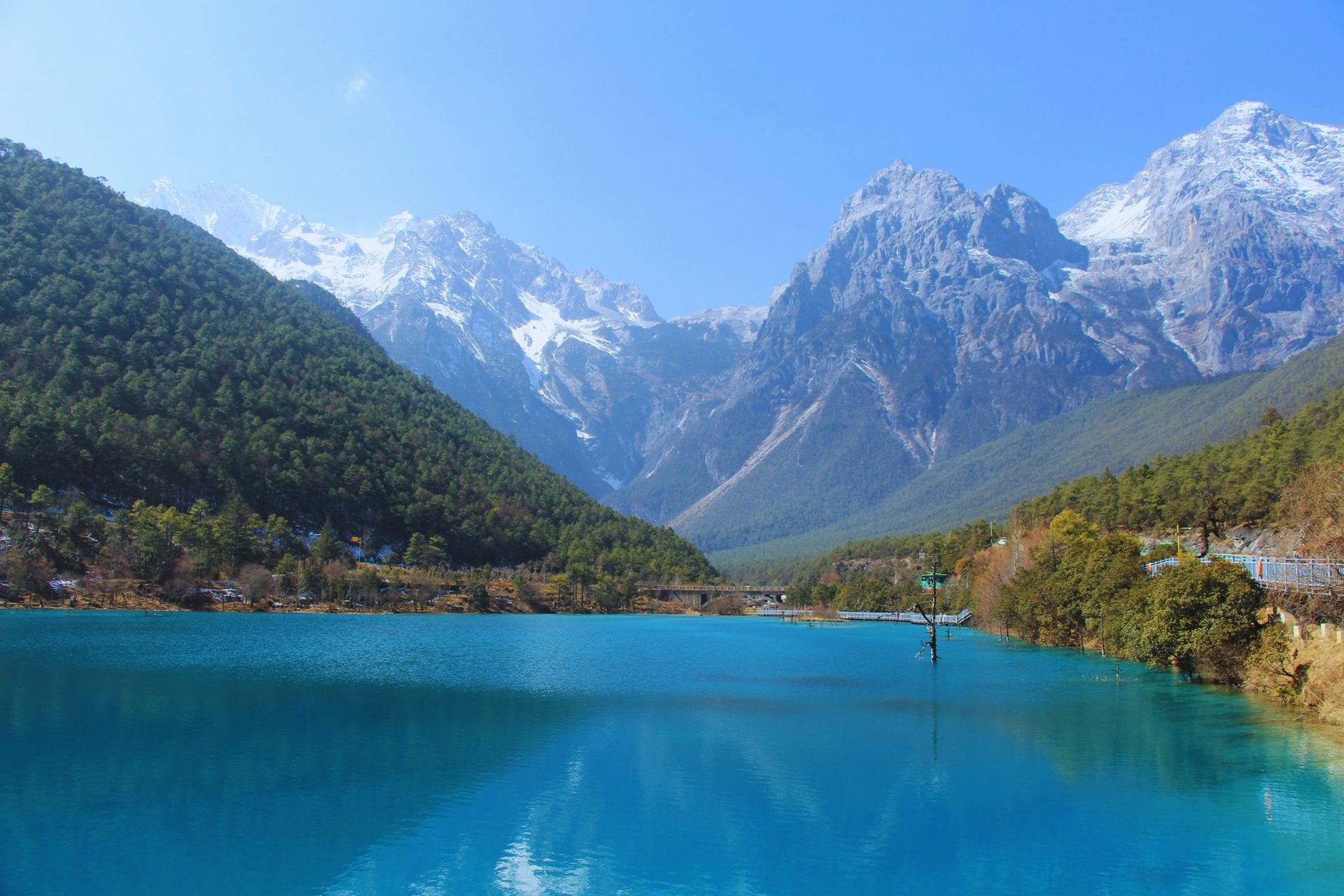
Lijiang: Where Time Sleeps in the Shadow of Jade Dragon Snow Mountain
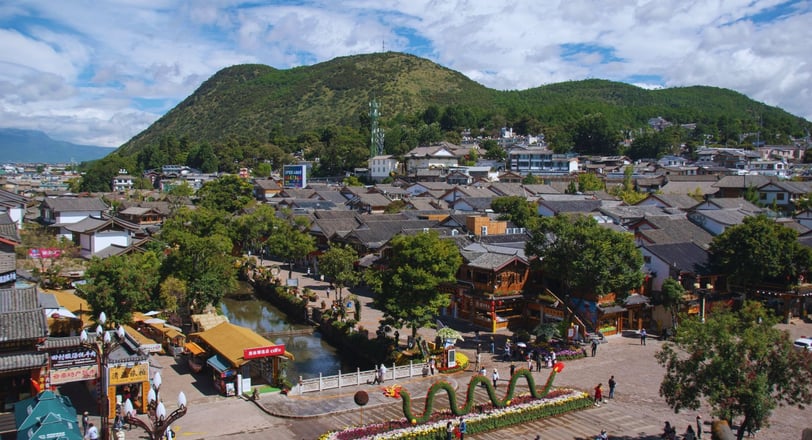

A Timeless Whisper in the Mountains
There are places where time moves slower, where the past lingers like mist over cobblestone streets. Lijiang is one of those places. Nestled in the highlands of Yunnan province, this ancient city breathes in the shadow of Jade Dragon Snow Mountain, its rooftops mirroring the undulating peaks above. The air carries a scent of pine and river water, mingled with the faintest notes of incense drifting from hidden courtyards. Here, time does not vanish; it settles into the stones, waiting for those who listen.
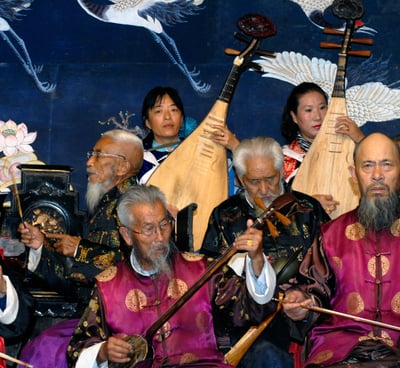

The Old Town’s Whispering Stones
Walking through Lijiang Old Town is like stepping into a painting. Narrow alleys wind between wooden houses with upturned eaves, their red lanterns swaying softly in the breeze. Water channels, designed centuries ago by the Naxi people, weave through the town, feeding small ponds where golden carp swim lazily. The bridges, low and elegant, are perfect for lingering—a place where poets once sat to watch their reflections ripple in the water.
Unlike many ancient towns in China, Lijiang has retained its soul. A UNESCO World Heritage site, its architecture speaks of the Ming Dynasty, but its spirit belongs to the Naxi people, an ethnic group whose traditions shape the town’s identity. In the central square, elders in blue robes still gather to discuss daily affairs, their voices blending with the soft strumming of a pipa from a nearby teahouse.
Echoes of the Naxi People
Lijiang is not just a city; it is a storybook written by the Naxi. Their unique Dongba script, a pictographic language that resembles ancient hieroglyphs, is the last of its kind still in use. Step into the Dongba Cultural Museum, and you will find scrolls filled with intricate symbols that tell tales of spirits, nature, and ancestors.
But perhaps the most haunting remnant of Naxi culture is the Dongba music, a tradition over 1,000 years old. In dimly lit halls, musicians pluck melodies from a forgotten era, their instruments—guzheng, pipa, erhu—spilling notes that tremble like wind chimes in the night. To listen is to be transported, as if the mountain itself is whispering secrets into the strings.
Where the Sky Meets the Earth
Towering above Lijiang is the ethereal Jade Dragon Snow Mountain (Yulong Xueshan). Its thirteen peaks, eternally crowned with snow, have witnessed centuries of change. The highest summit, Shanzidou, rises to 5,596 meters, piercing the clouds like a forgotten god watching over the land.
To reach the mountain, travelers take a cable car that ascends into the clouds. At Glacier Park, the air grows thin, and every step on the wooden walkway feels like a pilgrimage into the sky. Far below, the fields and villages shrink into an intricate tapestry of green and gold. At Blue Moon Valley, the waters are so vividly turquoise they seem surreal, reflecting the peaks above like a celestial mirror.
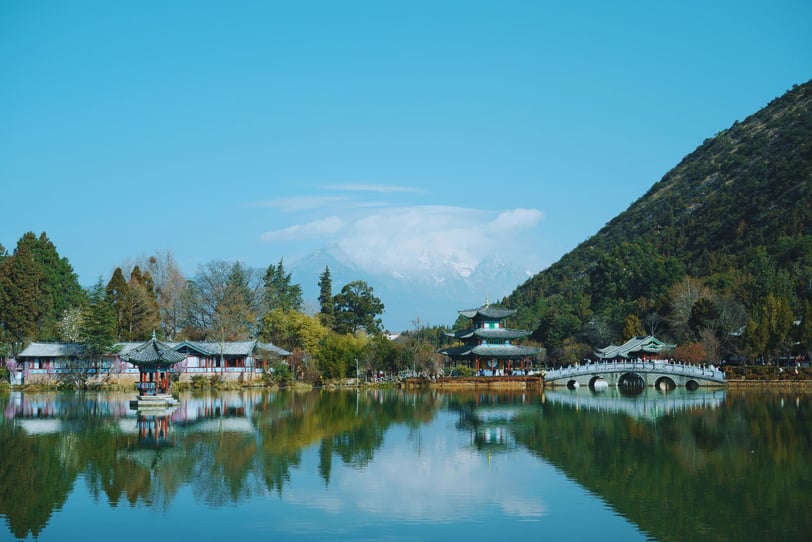

Lijiang Today: Between Preservation and Tourism
While Lijiang remains a relic of the past, it has also embraced modernity. With tourism surging, boutique hotels now line its ancient streets, and cafes with Wi-Fi nestle between centuries-old tea houses. This delicate balance between preservation and convenience makes Lijiang an accessible yet deeply cultural experience.
For the mindful traveler, the best way to appreciate Lijiang is to wander without purpose. Wake early to see the town before the tourists arrive, when the streets are still kissed by the hush of dawn. Lose yourself in a side alley where an old craftsman carves Naxi symbols into wood. Sit by a canal and let the water’s gentle lull weave your thoughts into the fabric of the town.
Traveling to Lijiang
How to Get There: Lijiang has its own airport (Lijiang Sanyi International Airport) with flights from major Chinese cities. High-speed trains also connect it to Kunming.
Where to Stay: From traditional Naxi-style guesthouses to luxury boutique hotels, there’s an option for every traveler.
Best Time to Visit: Spring (March-May) and autumn (September-November) offer the best weather, with clear skies and comfortable temperatures.
Who Will Love It: Lijiang is perfect for solo travelers seeking nostalgia, couples in search of romance, and cultural explorers drawn to ancient traditions.
Final Thoughts
Lijiang is not merely a place; it is a feeling—a slow inhale of mountain air, the hush of footsteps on stone, the melody of history carried on the wind. In its reflections, one finds not only the past but also a deeper understanding of time itself. Here, beneath the gaze of Jade Dragon Snow Mountain, time does not rush forward; it lingers, whispering stories to those who choose to listen.
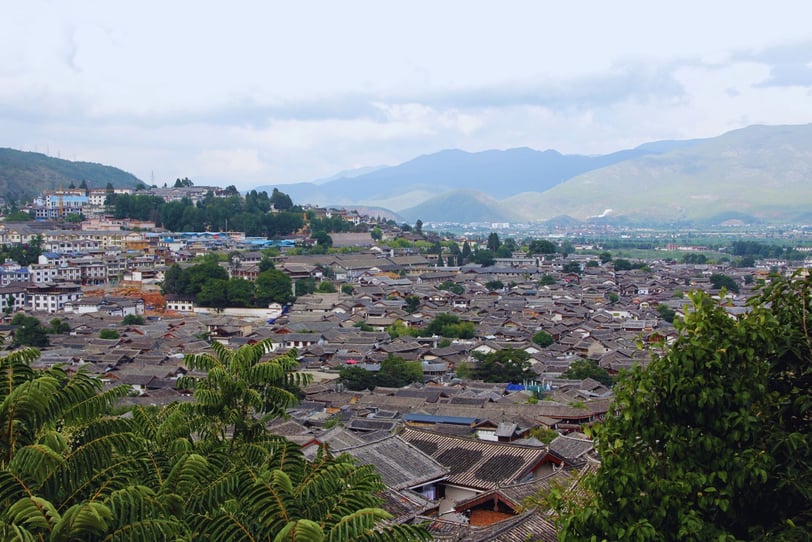

Perhaps it is in such a place that one truly understands the longing in the verses of Li Bai, the immortal poet of the Tang dynasty:
You ask me why I dwell in the green mountain,
I smile and make no reply, my heart at ease.
Peach blossoms flow downstream, carried by the water,
Gone to a world not of mortals.
In Lijiang, as the rivers carry their silent whispers and the mountain watches over the ancient town, it is easy to feel as if one has momentarily stepped beyond the bounds of time—into a world where beauty, solitude, and poetry intertwine.
For a deeper experience of Lijiang through the personal lens of quiet reflection and intimate moments, visit Travelers’ Tales — "Under the Jade Dragon’s Gaze: A Soliloquy in Lijiang."
✉️ Contact:
Curated by TrueTrip Hub |
© 2025 Invisible Atlas — All rights reserved.
Invisible Atlas
Journey Beyond the Visible
invisible.atlas@truetriphub.com
